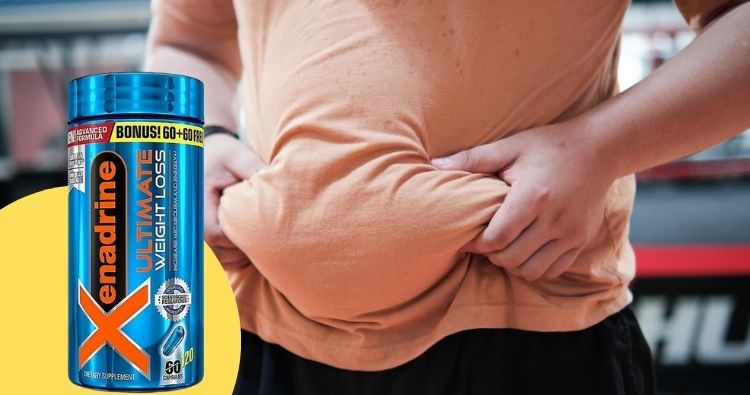Losing weight by abstaining from alcohol for 30 days is an effective strategy. Taking a break from drinking can lead to weight loss and improved overall health.
During this period, you eliminate empty calories from alcohol, improve your liver function, and potentially reduce your appetite. This article will explore the benefits of a 30-day no-drinking challenge and provide tips on how to achieve success. By committing to this lifestyle change, you can experience significant weight loss and other positive health outcomes.
Why No Drinking For 30 Days
In your weight loss journey, you may have heard of various methods to help shed those extra pounds. One method gaining popularity is the no drinking for 30 days challenge. But why is this approach gaining traction? In this article, we will explore the benefits of abstaining from alcohol for a month and how it can significantly impact your weight loss goals.
Benefits Of No Drinking
1. Improved Progress: Cutting out alcohol for 30 days can boost your weight loss progress. Alcohol contains empty calories, meaning it adds to your calorie intake without providing any nutritional value. By eliminating these empty calories, you are creating a calorie deficit, which is essential for weight loss.
2. Enhanced Metabolism: Alcohol can negatively affect your metabolism. When you consume alcohol, your body prioritizes breaking it down and eliminating it from your system, slowing down the metabolism of other ingested food or drinks. By taking a break from alcohol, you are allowing your metabolism to function at its optimal level, enabling more efficient weight loss.
3. Increased Energy Levels: Alcohol can disrupt your sleep patterns, leading to fatigue and low energy levels. By abstaining from drinking, you can ensure a better night’s sleep, ultimately resulting in increased energy levels during the day. This boost in energy can motivate you to engage in physical activities, helping you burn more calories and accelerate your weight loss journey.
How Alcohol Affects Weight Loss
1. Empty Calories: As mentioned earlier, alcoholic beverages contain calories that provide no nutritional value. These empty calories can contribute to weight gain, hinder weight loss progress, and make it harder to achieve your fitness goals.
2. Impaired Fat Burning: When alcohol is consumed, your body prioritizes breaking down and metabolizing alcohol rather than burning fat. This slows down the fat burning process, making it more challenging to lose weight.
3. Increased Appetite: Alcohol can stimulate your appetite and lower inhibitions, leading to increased food consumption and unhealthy eating choices. This overeating can easily sabotage your weight loss efforts.
In conclusion, by abstaining from alcohol for 30 days, you can enjoy a range of benefits that directly impact your weight loss journey. Improved progress, enhanced metabolism, and increased energy levels are just a few of the advantages you can experience. Additionally, by understanding how alcohol affects weight loss – be it through empty calories, impaired fat burning, or increased appetite – you can make informed decisions about your dietary choices. Take the challenge and see the positive changes it can bring to your overall well-being.
The Power Of Mindset
Mindset plays a crucial role in any journey towards improvement, and weight loss is no exception. When it comes to shedding those extra pounds, having the right mindset can make all the difference in achieving your goals. Shifting your mindset towards health and changing your relationship with alcohol are two key aspects to consider when embarking on a weight loss journey without drinking for 30 days.
Shifting Your Mindset Towards Health
Shifting your mindset towards health involves changing your perspective and focusing on the positive outcomes that a healthier lifestyle can bring. By embracing the idea that your body deserves the best care, you can create a mindset that supports your weight loss goals. Here are some strategies to help you shift your mindset:
- Set Intentions: Start each day with a clear intention to prioritize your health and well-being.
- Practice Gratitude: Embrace gratitude for your body and its ability to change and improve.
- Visualize Success: Spend a few minutes each day visualizing yourself reaching your weight loss goals and enjoying a healthier lifestyle.
- Replace Negative Thoughts: Replace negative thoughts about your body and abilities with positive affirmations.
Changing Your Relationship With Alcohol
Alcohol can often hinder weight loss efforts due to its empty calories and negative effects on the body. Changing your relationship with alcohol can be challenging but is essential for long-term weight loss success. Here are some steps to help you change your relationship with alcohol:
- Set Clear Boundaries: Define specific limits or abstain from alcohol completely to support your weight loss goals.
- Find Healthy Alternatives: Discover flavorful non-alcoholic beverages that can replace your usual alcoholic drink.
- Seek Support: Connect with friends, family, or support groups who understand and respect your decision to cut back or eliminate alcohol.
- Reward Yourself: Celebrate your milestones with non-food and non-alcohol-related rewards to reinforce positive behaviors.
By shifting your mindset towards health and changing your relationship with alcohol, you are setting yourself up for success on your weight loss journey. Remember, small changes in your mindset and habits can lead to significant improvements in your overall well-being.
Nutrition And Meal Planning
When it comes to weight loss, nutrition plays a key role in achieving your goals. By choosing the right foods and creating a balanced meal plan, you can support your weight loss journey and see long-lasting results. In this section, we will explore the importance of choosing foods that support weight loss and how to create a balanced meal plan that includes all the essential nutrients your body needs.
Choosing Foods That Support Weight Loss
When aiming to shed those extra pounds, it is crucial to select foods that support weight loss. These foods are low in calories but rich in essential nutrients to keep you satiated and energized throughout the day. Here are some key principles to consider in choosing weight-loss-friendly foods:
- Focus on whole, unprocessed foods: These include fruits, vegetables, whole grains, lean proteins, and healthy fats. They are nutrient-dense and usually low in calories.
- Fill up on fiber: High-fiber foods, such as whole grains, legumes, and vegetables, can help you feel full for longer periods. They also regulate your digestion and prevent overeating.
- Avoid added sugars: Sweetened drinks, desserts, and processed snacks are often packed with added sugars. Opt for naturally sweet alternatives like fruits and limit your consumption of sugary foods.
- Include lean proteins: Incorporating lean proteins, such as chicken, turkey, fish, tofu, and beans, into your meals can help satisfy your hunger and prevent muscle loss during weight loss.
- Prioritize healthy fats: Include sources of healthy fats, such as avocados, nuts, seeds, and olive oil, in your diet. These fats provide essential nutrients and promote a feeling of fullness.
Creating A Balanced Meal Plan
A well-designed meal plan is crucial for weight loss success. It helps you stay on track, ensures you’re getting all the necessary nutrients, and prevents impulsive food choices. Here’s how you can create a balanced meal plan:
- Determine your calorie needs: Calculate your daily calorie needs based on your age, weight, height, and activity level. This will give you a starting point for building your meal plan.
- Include all food groups: Make sure your meal plan includes a variety of foods from all food groups, including fruits, vegetables, whole grains, lean proteins, and healthy fats. This ensures you’re getting a wide range of essential nutrients.
- Control portion sizes: Pay attention to portion sizes to avoid overeating. Use smaller plates and bowls, measure your food, and focus on mindful eating to prevent mindless snacking.
- Plan your meals and snacks: Plan your meals and snacks in advance to prevent impulsive food choices. Preparing and portioning your meals ahead of time can save you time and help you make healthier choices.
- Listen to your body’s hunger and fullness cues: Eat when you’re hungry and stop when you feel satisfied, not overly full. Pay attention to your body’s signals to avoid unnecessary snacking or eating out of boredom.
By following these guidelines for choosing weight-loss-friendly foods and creating a balanced meal plan, you can optimize your nutrition and support your weight loss efforts.
Exercise And Physical Activity
Exercise and physical activity play a vital role in achieving weight loss goals. When combined with a balanced diet, an active lifestyle can help burn calories, build muscle, and increase metabolism. Regular exercise not only contributes to weight loss but also improves overall health and well-being. In this section, we will explore the role of exercise in weight loss and discuss effective workouts that can help maximize fat burning.
The Role Of Exercise In Weight Loss
Exercise is a powerful tool for weight loss. It helps create a calorie deficit by burning calories and increasing energy expenditure. Regular physical activity also boosts metabolism, which can lead to more efficient fat burning even at rest. Additionally, exercise helps preserve lean muscle mass, which plays a crucial role in maintaining a healthy weight.
Effective Workouts For Fat Burning
When it comes to fat burning, certain types of workouts are more effective than others. Here are a few workouts that can help you shed those extra pounds:
- Aerobic exercises like running, cycling, and swimming are excellent for burning calories and increasing cardiovascular endurance.
- High-intensity interval training (HIIT) involves short bursts of intense exercise alternated with periods of rest. HIIT workouts are known for their ability to burn a significant amount of calories in a short amount of time.
- Strength training, including weightlifting or bodyweight exercises, helps build muscle and boost metabolism, leading to continuous calorie burning even after the workout.
- Yoga and Pilates can improve flexibility, strength, and balance while promoting relaxation and reducing stress. These forms of exercise can also contribute to weight loss when combined with a healthy diet.
Incorporating a variety of exercises into your routine not only prevents boredom but also targets different muscle groups, optimizing fat burning potential. Remember to start at a comfortable fitness level and gradually increase the intensity and duration of your workouts to avoid injury and ensure consistent progress.
Staying Motivated And Overcoming Challenges
Sticking to a weight loss journey without drinking may seem challenging, but with the right mindset and strategies, you can achieve your goals. Building a supportive network and navigating social situations are key to staying motivated throughout the 30-day period.
Building A Supportive Network
Surrounding yourself with a supportive network is essential for staying motivated during your weight loss journey without alcohol. Here are a few ways to build a network that will keep you on track:
- Find an accountability partner: Pairing up with someone who shares similar goals can make a huge difference in your motivation levels. Choose a friend, family member, or colleague who can keep you accountable and provide support along the way.
- Join online communities: Virtual support groups and forums can be a great source of inspiration and encouragement. Look for online communities centered around weight loss or sobriety to connect with like-minded individuals who can offer guidance and share their experiences.
- Seek professional help: Consider consulting a nutritionist, dietitian, or therapist who specializes in weight loss. They can provide personalized guidance, offer strategies for overcoming obstacles, and help you stay motivated throughout the 30-day period.
Tips For Handling Social Situations
Social situations often present challenges when you’re trying to lose weight without drinking. However, with these tips, you can navigate these situations confidently:
- Communicate your goals: Let your friends and family know about your commitment to the 30-day challenge. Explain why it’s important to you and ask for their support. When people are aware of your goals, they are more likely to respect your choices and help you stay on track.
- Opt for non-alcoholic alternatives: Instead of consuming alcoholic beverages, explore non-alcoholic options such as fruit-infused water, herbal tea, or sparkling water with a splash of citrus. These alternatives can help you feel included in celebrations without compromising your weight loss efforts.
- Focus on the company, not the food or drink: When attending social gatherings, shift your attention to the people around you rather than the food or drink. Engage in conversations, participate in activities, and enjoy the company of others. By focusing on socializing, you’ll be less tempted to indulge in unhealthy choices.
- Plan ahead: If you’re attending an event where alcohol will be served, plan ahead by offering to bring a healthy dish or beverage. This way, you can ensure that there will be options available that align with your weight loss goals.
Remember, staying motivated on your weight loss journey without drinking for 30 days takes determination and resilience. By surrounding yourself with a supportive network and navigating social situations with these tips, you’ll be well-equipped to overcome challenges and achieve success!
Frequently Asked Questions On Weight Loss No Drinking 30 Days
Can You Lose Weight By Not Drinking For 30 Days?
Yes, by abstaining from alcohol for 30 days, you can successfully lose weight. Alcohol contains empty calories and inhibits fat burning.
What Are The Benefits Of Not Drinking Alcohol For 30 Days?
Not drinking alcohol for 30 days can lead to weight loss, improved liver function, better sleep quality, enhanced focus, and increased energy levels.
How Does Quitting Alcohol For 30 Days Affect Weight Loss?
Quitting alcohol for 30 days can aid in weight loss as it reduces calorie intake, promotes fat burning, eliminates bloating, and improves metabolism and digestion.
Conclusion
To conclude, the no drinking challenge for 30 days can be a life-changing experience when it comes to weight loss. By eliminating alcohol, you can reduce your calorie intake, improve your sleep and digestion, and ultimately achieve your weight loss goals.
Moreover, this lifestyle change can lead to increased energy levels and overall well-being. So, why not give it a try and see the amazing results for yourself? Cheers to a healthier you!
{ “@context”: “https://schema.org”, “@type”: “FAQPage”, “mainEntity”: [ { “@type”: “Question”, “name”: “Can you lose weight by not drinking for 30 days?”, “acceptedAnswer”: { “@type”: “Answer”, “text”: “Yes, by abstaining from alcohol for 30 days, you can successfully lose weight. Alcohol contains empty calories and inhibits fat burning.” } } , { “@type”: “Question”, “name”: “What are the benefits of not drinking alcohol for 30 days?”, “acceptedAnswer”: { “@type”: “Answer”, “text”: “Not drinking alcohol for 30 days can lead to weight loss, improved liver function, better sleep quality, enhanced focus, and increased energy levels.” } } , { “@type”: “Question”, “name”: “How does quitting alcohol for 30 days affect weight loss?”, “acceptedAnswer”: { “@type”: “Answer”, “text”: “Quitting alcohol for 30 days can aid in weight loss as it reduces calorie intake, promotes fat burning, eliminates bloating, and improves metabolism and digestion.” } } ] }









Leave a Reply